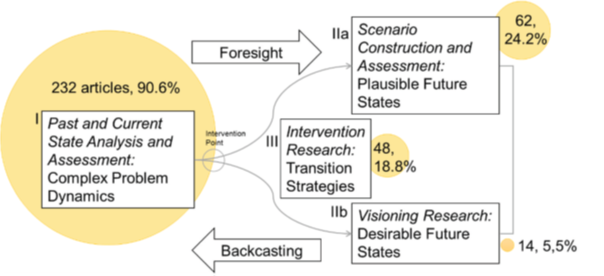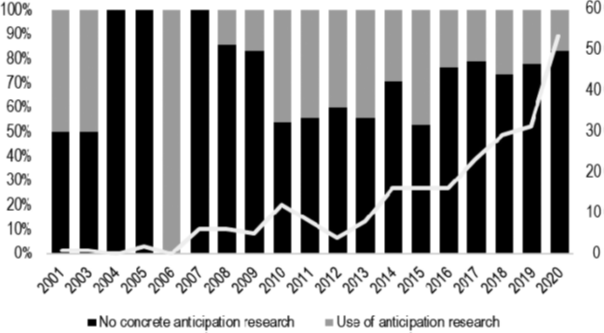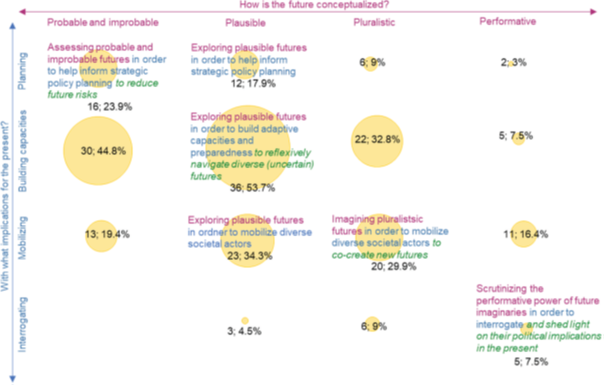Source: Pixabay
Coasts provide special habitats for a wide variety of life forms. They also protect against erosion caused by storm surges and other large waves such as tsunamis. However, whether in Europe, Southeast Asia or Africa – coastal ecosystems are threatened worldwide due to anthropogenic sustainability crises such as the climate crises or pollution. People in the Global South in particular suffer from the consequences of changing coasts due to (neo-)colonialism, globalization and capitalism as well as unstable political and economic conditions.

“The literature review interestingly showed that (a) anticipatory research in the Global South has relatively speaking not increased over the last decade, and (b) much focus in transdisciplinary transformative research is on “past and current state” analyses and not on visioning.”
Maraja Riechers from SES-Institute
Relying solely on traditional academic knowledge may not be sufficient to protect those coasts and to facilitate the emergence of alternative sustainable visions, researchers from the SES-Institute at the Leuphana University are convinced. On the contrary, scientific efforts must innovate transformative methodologies and methods to support sustainable visions. Anticipation research in combination with transdisciplinary research is key in promoting sustainability transformation by enhancing alternative future scenarios in collaboration with stakeholders. Innovative research methods can create imaginative spaces, introducing novel ways of living and emphasizing radical, innovative, and sustainable goals to drive transformation towards a more sustainable future.
Therefore, Maraja Riechers, Lilly Baumann and colleagues analysed the extent to which transdisciplinary approaches applied to cases in the Global South consider ‘anticipation of the future’ of coastal systems. To answer this, they conducted a systematic literature review analysing 256 peer reviewed articles.
The systematic literature review revealed that the majority of the reviewed articles focused on analyzing past and current states instead of research on plausible futures, transition strategies or visioning research. The use of anticipation research, if conducted, primarily emphasized plausible and (im)probable futures, rather than pluralistic or performative scenarios, and aimed to enhance present capacities rather than mobilize or question various social actors and political implications in the current context. Articles utilizing anticipation methods seldom explored the connection between anticipation and sustainability transformation.
Transform framework with integrated numbers of articles found in each step, represented by the size of the circles. One article could perform more than one step of the framework. Adapted from (Wiek and Lang 2016).
Distribution of reviewed articles describing transdisciplinary and transformative research that work with (grey) and without (black) anticipation approaches specifically and from 2001 to 2020 in percent (legend on the left); number of articles in this literature by time (legend on the right).
Approaches to anticipatory governance with integrated numbers of articles found in each approach, represented by the size of the circles. One article could apply more than one step of the framework. Adapted from (Muiderman et al. 2020).
However, combining transdisciplinary and anticipation research can synergistically drive sustainability transformation. This combined approach can incorporate diverse perspectives and values of stakeholders, fostering alternative visions to challenge unsustainable narratives.
Their findings suggest enhancing the integration of transdisciplinary and anticipation methodologies in research to highlight alternative visions of sustainability that may already exist and to amplify diverse values, epistemologies, and ontologies.
By doing so, future visions may become more inclusive and reflective of realities in the Global South. Anticipating the future through transdisciplinary methods can lay the groundwork for managing future environmental and societal challenges adaptively. This approach can offer insights to identify, mitigate, or prevent governance actions leading to undesirable future outcomes. Integrating anticipation and foresight into transdisciplinary research holds promise for realizing innovative and sustainable future visions.
Using transdisciplinary anticipatory research offers the opportunity to produce knowledge which could lead to meaningful contributions to protect and sustain coastal regions, their ecosystems and values for people.
Lilly Baumann is the first author of the paper and did this research for her bachelor thesis.
This article is part of a (completed) working group of the German Commission on Sustainability (Deutschen Kommission Nachhaltigkeit (DKN)) of Future Earth. More information here.
Read the full paper here.
Lilly Baumann, Maraja Riechers, Louis Celliers & Sebastian C. A. Ferse (2023). Anticipating and transforming futures: a literature review on transdisciplinary coastal research in the Global South, Ecosystems and People, 19:1, 2288957
Text by Mareike Andert




